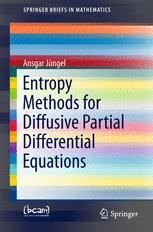

Most ebook files are in PDF format, so you can easily read them using various software such as Foxit Reader or directly on the Google Chrome browser.
Some ebook files are released by publishers in other formats such as .awz, .mobi, .epub, .fb2, etc. You may need to install specific software to read these formats on mobile/PC, such as Calibre.
Please read the tutorial at this link: https://ebookbell.com/faq
We offer FREE conversion to the popular formats you request; however, this may take some time. Therefore, right after payment, please email us, and we will try to provide the service as quickly as possible.
For some exceptional file formats or broken links (if any), please refrain from opening any disputes. Instead, email us first, and we will try to assist within a maximum of 6 hours.
EbookBell Team

4.4
72 reviewsThis book presents a range of entropy methods for diffusive PDEs devised by many researchers in the course of the past few decades, which allow us to understand the qualitative behavior of solutions to diffusive equations (and Markov diffusion processes). Applications include the large-time asymptotics of solutions, the derivation of convex Sobolev inequalities, the existence and uniqueness of weak solutions, and the analysis of discrete and geometric structures of the PDEs. The purpose of the book is to provide readers an introduction to selected entropy methods that can be found in the research literature. In order to highlight the core concepts, the results are not stated in the widest generality and most of the arguments are only formal (in the sense that the functional setting is not specified or sufficient regularity is supposed). The text is also suitable for advanced master and PhD students and could serve as a textbook for special courses and seminars.